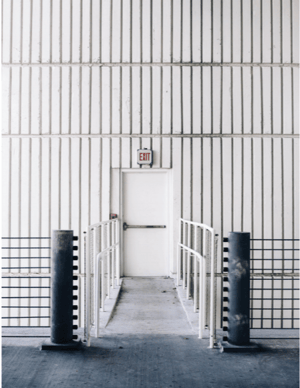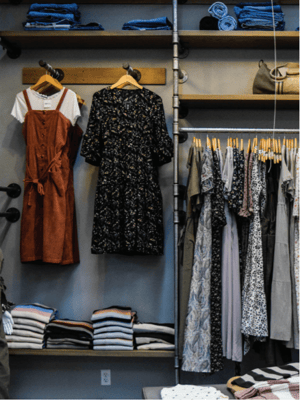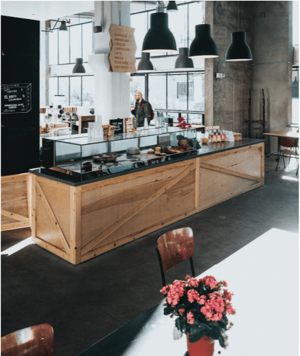As the old saying goes out of adversity comes opportunity!

COVID-19 is certainly presenting challenges in all areas of life – from health and overall wellbeing through to the economy. It’s a big unknown what the property investment landscape will look like once we emerge from the lockdown and enter a period of some normalcy, but I believe commercial property will come out the other side as an investment asset of choice for many investors.
At Level 3, there is some room for optimism as New Zealand’s COVID-19 numbers continue to fall and light is appearing at the end of the tunnel. However, there are still many businesses that are not able to recommence operations at Level 3 and the longer we stay there, the more pressure there will be on cashflows and the ability of businesses to survive this pandemic.
Before we consider what this means for the commercial property sector, here are some facts that we do know:
- Freedom of movement has been severely curtailed across all borders throughout the world.
- Tourism has come to a grinding halt both locally and internationally.
- Many companies associated with the tourism industry will not survive or will look completely different post Covid-19, Air New Zealand being an example.
- Retail has been severely impacted.
- Retail outlets that are reliant on international tourists will have compounded problems.
- Interest rates and mortgage rates are at historical lows in New Zealand (as well as in many of our major trading partners) and unlikely to rise over the next couple of years.
- The NZ Government has been quick to respond and assist the business community.
- Our main banks are well capitalised and still see commercial property as a sound investment. However, they are picky about who they deal with and they see certain sectors as having an increased risk profile.
- Many tenants are unable or unwilling to pay rent.
What does this mean for the commercial property sector?
Firstly, we need to note that commercial property is broken into several sub sectors such as office, industrial, warehousing and logistics, retail including retail shops, strip malls and regional malls, tourism, hospitality and leisure, and residential investment property. Each specific sector will be impacted to different degrees by COVID-19.
Property values for investment property will also inevitably be affected. Property values are determined by a variety of factors, some of these will remain constant such as the location of the property, resource management and the physical nature of the building.
Factors that have changed due to COVID-19 and will impact on asset values are two-fold. The first is lease covenants which includes such things as the quantum of rental achieved, financial strength of the tenants, length of the lease and what the tenant is responsible for in terms of the lease, such as outgoings. The second are economic and business considerations which support, depending on the situation, a level of investor confidence. Investor confidence flows through to impact on property yields.
The question being asked across all sectors is what rental relief are you prepared to give me?
Our commercial property managers at NAI Harcourts have been busy across the country dealing with enquiries and trying to achieve mutual agreement between landlord and tenants.
If your lease is the ADLS Deed of Lease (Sixth Edition 2012 or later), Clause 27.5 of that document provides relief to tenants where they are unable to gain access to their premises during an emergency. The Clause provides for a “fair proportion” of rent and outgoings to cease to be payable if there is an emergency which results in the tenant being unable to access their premises to conduct their business.
If your lease does not contain Clause 27.5, we suggest that you negotiate in good faith to reach an amicable settlement, bearing in mind that both parties may have potential financial commitments and some common sense needs to prevail. This is not a time for being stubborn or obstinate, but a time to be decisive and come to a win-win outcome for both parties.
In this difficult environment, the priority from a landlord’s perspective must be to retain their tenant, as any vacancy will not be easy to fill in the present market.
Here’s a snapshot of how the different sectors could be impacted.
Office Sector
 Current issues in this sector include widespread requests for rental reductions or inability of the tenant to pay the contract rental. The education sector, including language schools which are part of the sub office sector, has also been severely impacted as large numbers of foreign students are not returning.
Current issues in this sector include widespread requests for rental reductions or inability of the tenant to pay the contract rental. The education sector, including language schools which are part of the sub office sector, has also been severely impacted as large numbers of foreign students are not returning.
Central and Local Government, as well as large corporates, will be sought after tenants post COVID-19 and will also help drive demand for quality investments.
Whilst there may be an increase in vacant office space, this is not necessarily a bad thing as vacancies have been at near zero levels in the major markets of Auckland and Wellington, particularly for prime office buildings.
Post COVID-19 and when the dust settles, we expect to see an increase in office vacancies and some softening of yields across the country. Investors will be more discerning around tenancies, especially if the building has a limited number of tenancies, and more reliance will be placed on them to ensure cashflow reliability.
Industrial Sector
 The industrial sector consists of several sub-categories including warehousing, storage, logistics and manufacturing. This is the sector we believe will see the least impact from COVID-19 from a property investment perspective and will continue to be the asset class of choice for many investors.
The industrial sector consists of several sub-categories including warehousing, storage, logistics and manufacturing. This is the sector we believe will see the least impact from COVID-19 from a property investment perspective and will continue to be the asset class of choice for many investors.
Leading up to COVID-19, our industrial property markets were the go-to sector for investors across the country, with record prices and yields being achieved for well-located buildings tenanted by quality companies.
Overseas there are recent examples of warehousing and logistics assets being in high demand as online shopping increases and essential services such as supermarkets require additional storage space. An example of this is US Equity firm, Blackstone, agreeing to buy a portfolio of logistics sites across the United Kingdom for 120 million pounds in March of this year.
We see this as a growing trend in New Zealand, with an increased presence and demand for online shopping due to COVID-19 and the resultant increase in demand for logistics and warehousing space.
In the short to medium term, and when the country returns to Level 2, we expect some softening of yields across the country but continued strong investor demand for quality industrial buildings that have robust lease covenants and with a focus on storage, warehousing and logistics buildings.
Retail Sector

Investors that have property tenanted by retail and hospitality businesses will need to ensure that they are a little more circumspect and do their best to negotiate a win-win agreement with their tenants regarding their rental.
The retail sector is potentially going to be hit the hardest by COVID-19. Retailers, unless they are deemed an essential service, cannot operate their business under the lockdown and it will take time for their business to return to some degree of normalcy after the lockdown ends. Once retail shops are reopened, shoppers are likely to remain conscious of social distancing and wary of COVID-19.
In the short to medium term post COVID-19, we expect to see increased vacancy and a potential softening of rentals. Vacant space will take longer to lease than it did pre COVID-19 and increased incentives will need to be considered in order to secure new tenants. From an investment perspective, their will likely be a softening of yields for properties that have a retail component.
Hospitality Sector
 Tourism has been one of the main contributors to our gross domestic product (GDP) generating $16.2 billion, or 5.8 percent of GDP, for the year ended March 2019 (Tourism New Zealand). This sector will feel the full brunt of Covid-19.
Tourism has been one of the main contributors to our gross domestic product (GDP) generating $16.2 billion, or 5.8 percent of GDP, for the year ended March 2019 (Tourism New Zealand). This sector will feel the full brunt of Covid-19.
With our borders closed and the sector reliant on inbound tourism, occupancy numbers in our hotels and motels will be significantly reduced and our bars, restaurants and entertainment venues will be less frequented, particularly in tourist hot spots of Auckland, Christchurch, Rotorua and Queenstown.
The RevPar levels, a metric used in the hospitality industry to measure hotel performance, will decrease for hotels and motels across the country as well as other hotel revenue generators such as associated restaurants and bars.
This will be further exacerbated by the significant downsizing of Air New Zealand and the loss of revenue from cruise ships that visit New Zealand ports which generated $306 million in 2016/17 according to Statistics NZ.
Some operators won’t survive the downturn, resulting in issues for investors as properties look for new operators. Hotel and motel occupancy and dollar spend will be down significantly, leading to reduced returns to investors, including investors who have purchased units that are part of a hotel pool. Overall asset values are also likely to decrease.
Summary
Post COVID-19, commercial property will continue to be a sound and sought-after investment, but investors will need to be clear about their investment objectives and strategy and understand what level of risk they are prepared to take. Lastly and as with any potential investment, investors need to undertake sound due diligence. Post COVID-19, this will become more important than ever.
Tony Kidd is the General Manager of
NAI Harcourts, New Zealand. NAI Harcourts is the commercial trading division of Harcourts Group, New Zealand’s largest real estate group.
Tony has over 30 years’ experience in the property industry in New Zealand, the Pacific Islands and the Middle East. His experience covers expertise in areas of valuation, property management, agency and property investing.
This article featured in NAI Harcourts Market Leader Issue 2, 2020